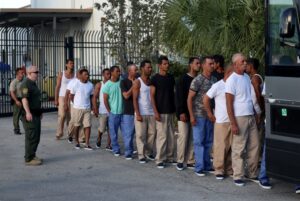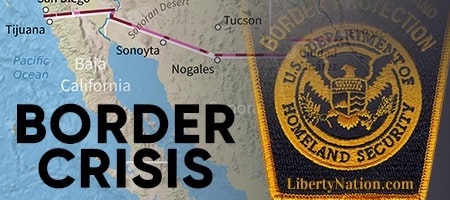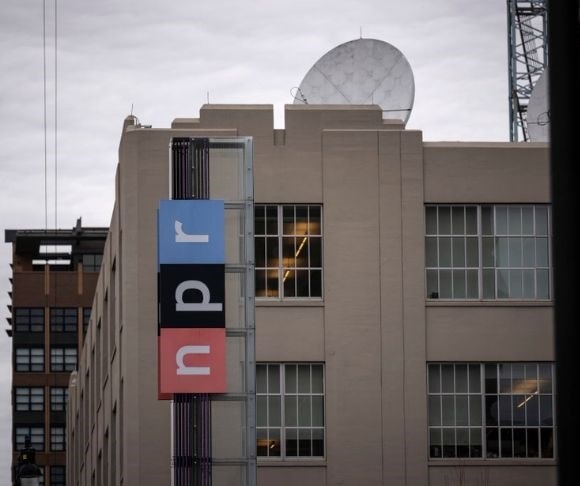NPR objects to being labeled a state-affiliated media outlet — yet it often churns out “news reports” so brazenly in sync with the progressive ruling establishment that they resemble government press releases. If you’re looking for a recent example, it’s hard to top Boston’s NPR affiliate putting a positive pastel hue on the notion that Massachusetts residents need to open the doors of their homes to illegal immigrants.
“In new strategy, state asks locals to host unhoused, migrant families as officials scramble to expand shelters,” read the headline on a July 15 article at WBUR, the Beantown NPR affiliate associated with Boston University. The “news” item seems to regurgitate leftist Bay State government talking points, trying to normalize something that would have been seen as ridiculous only a few short years ago. “The new host family strategy comes as the state scrambles to expand shelter capacity and provide for an increasing number of homeless families,” the text read. “The state’s new Family Welcome Center in Allston is tasked with recruiting, vetting and onboarding host families, as well as pairing them with the families in need.”
The NPR Echo Chamber
WBUR advises Massachusetts citizens that this is merely a local twist on federal efforts to deal with a “crisis.” Left out are any details on how such a crisis becomes unavoidable when “refugees” and “migrants” are encouraged to pour into the United States unabated:
“‘This has previously been a practice among Resettlement Agencies and other volunteers who work to support new arrivals,’ said Karissa Hand, press secretary for the [Democrat Gov. Maura] Healey administration, in a statement. Host families are generally drawn from the community and volunteer networks, her statement said.
“Those interested in hosting can contact the Brazilian Worker Center, which runs the Allston welcome facility.
“The host family model has historically been used to house refugees coming through State Department programs as well as help support unaccompanied minors in need of shelter. However, homeless advocates say it has not been broadly applied to family homelessness in the past.”
Massachusetts citizens already feel the economic burden of trying to accommodate the recent stream of arrivals. “A Republican state lawmaker accused the Healey administration of providing a ‘woefully incomplete’ response to a request for the costs associated with housing migrant families in 38 hotels and motels on an emergency basis,” the Boston Herald reported July 11. “This is about what we’re spending in taxpayers’ dollars to house, feed, secure those who are in the country illegally,” state Rep. Peter Durant, who represents a district in the central part of the state, told the paper.
The migrants are being dispatched throughout the state, often to small towns. Haitians fleeing the violence and chaos that has plagued their nation for centuries are heading to New England in increasing numbers, straining local resources. “Families with babies squirming in carriages, Haitian migrants with nowhere else to go. They have inundated the lobby at Boston Medical Center, and now a storefront in the center of Mattapan, where the Immigrant Family Services Institute (IFSI) helps them find shelter,” CBS TV affiliate WBZ reported in May.
Moving Haiti North
As with NPR, the local CBS “news” account made sure to highlight the disaster that is Haiti and not the looming negative effects on American communities should every Haitian who has good reason to flee, which the article makes clear is pretty much all of them, is allowed into the United States.

(Photo by Joe Raedle/Getty Images)
“By noon [on May 1], 135 people were there seeking services at IFSI. One man, who did not want to be identified, spoke through an interpreter about why he left Haiti,” CBS wrote.“It’s really impossible for us to live in the country right now,” he said. “With all the gang violence, without access to any services, hospital, or work, there’s no way for anyone to live in Haiti.”
GOP Rep. Matt Gaetz (R-FL) on July 13 penned an op-ed for the Daily Caller focusing on the astronomical surge in illegal immigration from Haiti into his home state of Florida this year. “Between January and May of 2023 alone, [US Customs and Border Protection] encountered 23,490 illegal Haitians in its Florida sector,” Gaetz noted. “For comparison, in Fiscal Years 2020, 2021, and 2022 combined – CBP encountered just 1,479 in its Florida sector.” But what of the higher point: Do the American people, via elaborately organized government process or illegal trespass, have a duty to absorb the entire nation of Haiti into their neighborhoods and, as Massachusetts is asking, into their homes?
“Haiti is a miserable place and has been for a long time,” Gaetz noted. “The government there is corrupt and the quality of life is the worst in the Western Hemisphere. I know. I’ve been there and I saw it. It was a sad, horrid state of human existence and I wish that the corruption that has harmed these people didn’t exist – but it does. The fact that Haiti is close to Florida, does not mean that my state should be inundated with illegal Haitian immigrants … We are not Haiti.”
 The wave is not stopping at the Sunshine State. It is now crashing onto the upper Northeast.
The wave is not stopping at the Sunshine State. It is now crashing onto the upper Northeast.
“The problem is too big for any one provider,” Alexandra Weber, senior vice president at the International Institute of New England, another NGO that helps “resettle” migrants and refugees in the area, told another Boston NPR affiliate, WGBH, in May. “She added that Haitians have become the biggest group ‘by far’ among all the new arrivals her organization assists.” Federally partnered NGOs and their regional satellites have become overwhelmed by the flood tide. Rather than question why, government-affiliated NPR wants Massachusettsans to know the state needs them to lend a helping hand.
Immigrant Family Services Institute Executive Director Geralde Gabeau “said she often sees an uptick in new arrivals in the summer months, particularly in July and August, and she expects this year to be the same. She said the response will require the mobilization of individuals as well as nonprofits and government agencies,” WBUR’s spin piece concluded. “As individuals, as community members, I believe we can do so much more.”




